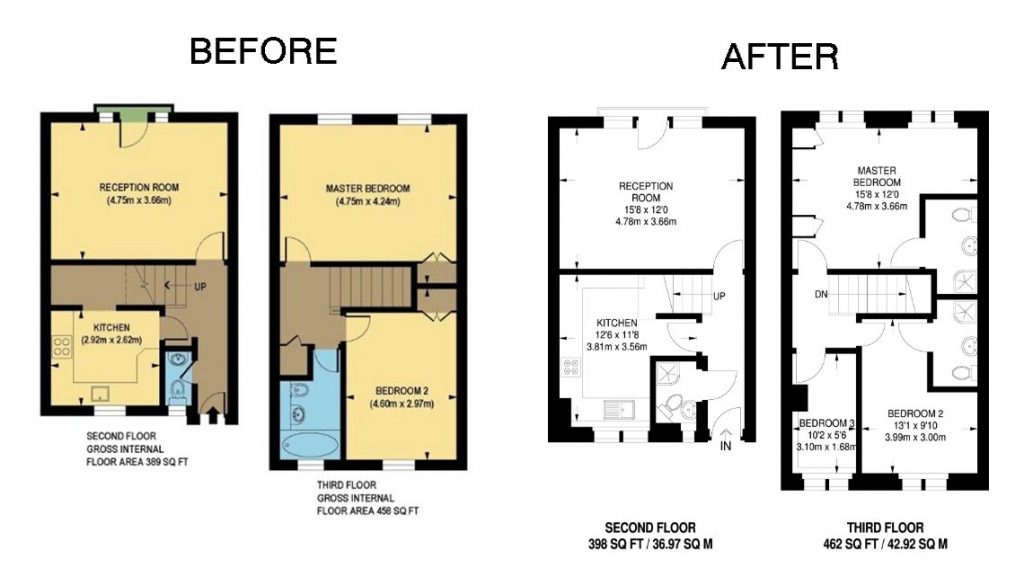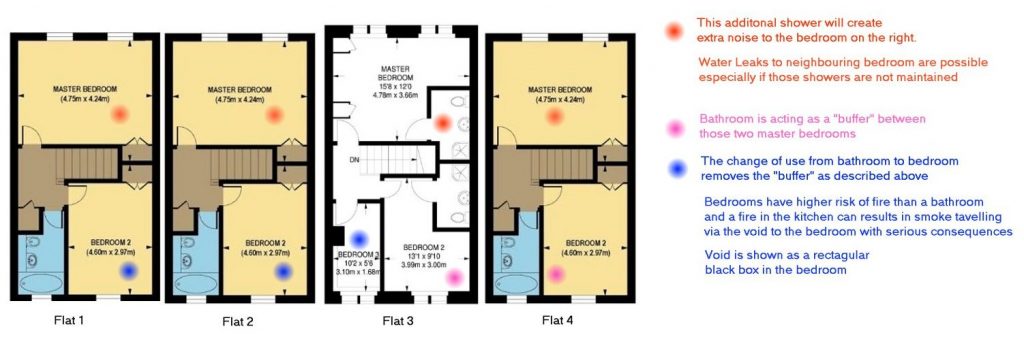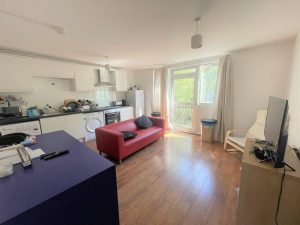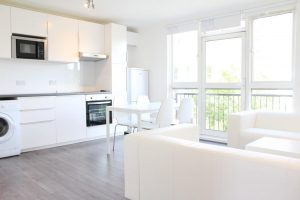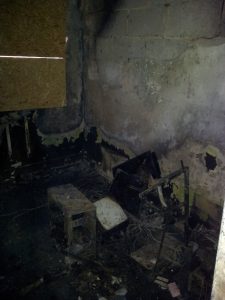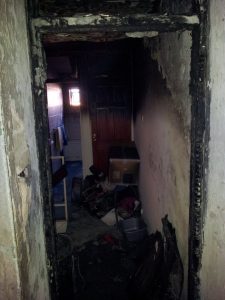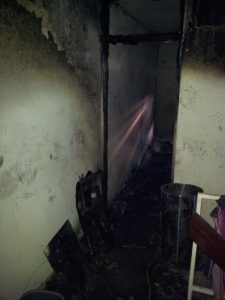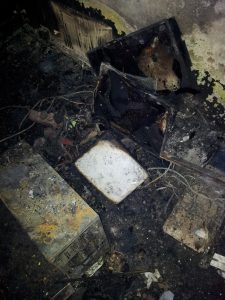PETITION AGAINST UNAUTHORISED ALTERATIONS
SUMMARY
As a collection of neighbouring residents in the Curnock Steet Estate, we are concerned about excessive unauthorised alterations within some properties, which will have an adverse effect on all of us and the peaceful enjoyment of our properties. Many excessive alterations are done without the written permission of the Camden Council, as leases and tenancy agreements require it.
We are simply asking the council to enforce the terms of the leases or tenancy agreements and consider the other residents before making a decision.
We specifically are requesting the council to do the following:
- Stop those making unauthorised alterations immediately.
- Ask those leaseholders or tenants to restore properties to their original layout when the changes adversely affect neighbours.
- Stop providing written permission for alterations without consideration of the following:
- Effects on neighbouring properties and communal services as a whole
- Adverse impact on water pressure, which is extremely low already.
- The high density of short-term occupants in one property.
For more information, please click on the tabs below, which are based on the following real example:
As mentioned in another tab (‘Lease’), those alterations must have written permission and comply with clauses 3.13 and 3.19. That means that the floors have to be covered by carpets (not tiles) and the bathrooms or kitchen with a cork or rubber covering or other suitable material for avoiding the transmission of noise. This is not always the case, which has resulted in the neighbouring flats below suffering noise problems.
Look at the illustration below, where the “modified” flat is between two flats with the original layout: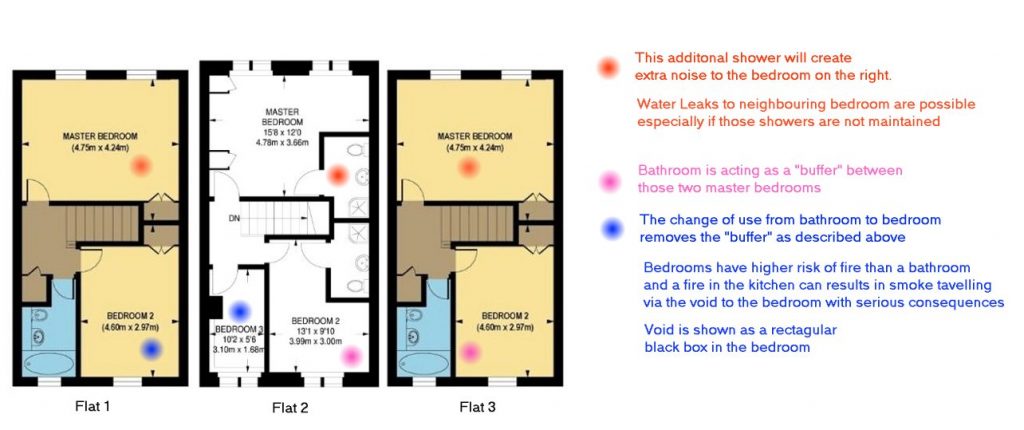
Now observe the same scenario in the following illustration but with an additional flat on the left.
The noise problems worsen for the flats below, especially when the floors are covered with hard flooring.
Also, some leaseholders have moved the kitchen to the living room, meaning that the neighbouring living room and the bedroom below have constant noise whenever someone is cooking or using the washing machine or other electrical appliances.
Another example can be seen below:
Look at some real photos below, which show a breach of lease clause 3.19 because they are using hard flooring. A busy kitchen and living area will definitely create a lot of noise for the two bedrooms located immediately below that area. On top of that, imagine the dryer in operation for 2-3 hours.*
IMPORTANT: We do not imply that those flats do not have written permission or that those particular neighbours have problems. Those photos are used for illustration purposes ONLY.
What are the fire risks of those alterations, especially when the brick walls are removed and replaced with plasterboards?
We are asking this because we are aware of four fires on the estate, which ALL were contained within the room where the fire started, and the reason for that was the internal brick walls and layout.
See below the photos from one of the fires. The first shows the condition of the room after the incident, and the second is the corridor immediately outside the room. The fire damaged the ceiling, but it did not spread to other rooms. If the walls had not been a brick wall, both rooms or the whole floor would have been destroyed.
As you can see from the floorplan above, the particular owner/leaseholder has removed a few walls and converted the bathroom into a bedroom and the downstairs toilet into a shower room. The airing cupboard has been removed as well.
The removal of walls needs written permission per clause 3.14 and someone to check whether those walls support walls. Those alterations, especially when not authorised, can affect the building’s stability.
New partitioning walls are not constructed with bricks but plasterboards which cannot contain a fire like brick walls.
We simply ask the council to stop those alterations that might risk people’s lives and homes.
As you can see from the floorplan above, the particular owner/leaseholder has added two additional shower rooms and removed the original bathroom.
The extra bathrooms or shower rooms also increase the risk of flooding to the properties below or next to them due to water leaks. They also put an extra demand for communal central heating and hot water services.
The noise created by those additional showers will affect the neighbouring properties, mainly when the students use them at inappropriate times.
The original layout currently offers a “buffer” between one flat’s main bedroom and the neighbouring flat’s bedroom. The noise is minimised, especially at night. Since the bathroom is now a bedroom, there are some other problems. The sound of playing music will travel via the void where the pipes are, and it will be amplified to the other flats.
None of the leaseholders or the council has done a survey to assess the everyday noise impact of those changes of use.
As mentioned in another tab, those alterations must have written permission and comply with clauses 3.13 and 3.19. That means that the floors have to be covered by carpets (not tiles) and the bathrooms or kitchen with a cork or rubber covering or other suitable material for avoiding the transmission of noise. This is not always the case, which has resulted in the neighbouring flats below suffering noise problems.
This is not the case in the following examples where a hard floor is used instead of a carpet:
Unsupervised or unauthorised alterations to pipes might affect communal services for other properties. Heating pipes, for instance, are linked, and six flats use one pipe for the service. Also, rerouting the pipes might introduce flow problems and a lack of pressure for other properties.
More shower rooms and more people are using the communal services concurrently, making it less likely that the system will be able to cope. Camden Council has already stated that the system can not handle excessive extra demand by a mere 5-10% additional demand. However, more and more people are adding showers, which is much higher than 10%. See the quote on the right.
We also received this email on the 19th January 2024:
Good Evening All,
Following on from an early leak within a leaseholders property in Trimdon who had carried out radiator installations incorrectly, we isolated Trimdon and Thurnscoe to install correct isolation valves within the property.
This was communicated with Camden call centre team and M+E team.
The blocks have since been reinstated and boilers are functioning.
We have operatives onsite ensuring any air is cleared and temperatures are recovering but due to the high demand on the system are taking longer than expected. We will ensure we door knock all block to confirm services are restored this evening before leaving site.
An update will follow.
Many Thanks,
Alex Lloyd
Contract Manager
GEMEBS.COM
The following clauses are in every lease for flats inside this estate. Similar clauses are in tenancy agreements. I have listed them below in order of importance:
Paragraph 3.14 of the lease states clearly: “Not at any time without the license in writing of the Landlord first obtained nor except in accordance with the plans and specifications previously submitted in triplicate to the Landlord and approved in writing by the Landlord and to its satisfaction to make any alteration or addition whatsoever in or to the Premises either externally or internally or to make any alterations or aperture in the plan walls timbers elevations or architectural appearance thereof nor to cut or remove the main walls timbers floors or ceilings of the Flat unless for the purpose of repairing and making good any defect therein nor to do or suffer in or upon the Flat any wilful or voluntary waste or spoil”
Paragraph 3.13 of the lease states clearly: “… permit to suffer to be done any act deed matter or thing whatsoever whereby the risk or hazard of the Flat or the Managed Buildings being destroyed or damaged by fire shall be increased so as to require an additional premium for insuring the same or which may make void or voidable any policy for insurance.”
Paragraph 3.19 of the lease states clearly: “To keep the floors of the Flat including the passages thereof substantially covered with carpets except that in kitchen and bathroom a cork or rubber covering or other suitable material for avoiding the transmission of noise may be used instead of carpets.”
Paragraph 3.18 of the lease states clearly: “Not to do or permit to be done upon or in connection with the Flat or the Managed Buildings anything which shall be or tend to be a nuisance annoyance or cause of damage to the Landlord or its tenants or any of them or to any neighbouring adjoining or adjacent property or the owner or occupiers thereof “
We have asked the council to provide us with the following information under the Freedom Of Information Act (case reference is CAM6794)
In the last ten years, many properties have had excessive alterations within the flats, requiring written permission per lease clause 3.14. Some of those alterations also need to comply with clause 3.19 regarding floor covering to minimise noise to other flats.
- How many written permissions have the housing or planning departments given to leaseholders or tenants on the Curnock Street Estate so far in the last ten years?
- We do not need to know which flats (it is publicly available), but we need the total number of permissions for the whole estate and, if possible, per block.
The response can be found here: https://www.curnocktra.co.uk/wp-content/uploads/2024/02/CAM6794_Response.pdf
We have asked the council to provide us with the following information under the Freedom Of Information Act (case reference is CAM6804)
Further to my request CAM6794, I would like to ask the following regarding the Curnock Street Estate:
- On the written permissions you have given for license to alter, how often have you consulted the neighbours for the adverse effects of the alterations to their flats?
- How many noise complaints have you received on the estate for the last 5 years?
- Have there been any consultations regarding the impact of those alterations to communal services, and if there are, then why are communal services constantly falling and all the new alterations taking water from the mains? Is that because the cold water pressure from the water tank is too low?
The response can be found here: https://www.curnocktra.co.uk/wp-content/uploads/2024/02/CAM6804_Response.pdf
Tell Us Your Story
Please tell us how the above issues are affecting you and any stories that will help our case to the council so they can take action.
Unauthorised Alterations
This petition is now closed.
End date: Apr 01, 2024
Signatures collected: 19
Signature goal: 30
Signature goal: 30
WHAT PROFESSIONALS SAID
Following on from an early leak within a leaseholder’s property in Trimdon that had carried out radiator installations incorrectly, we isolated Trimdon and Thurnscoe to install the correct isolation valves within the property.
We have operatives onsite ensuring any air is cleared and temperatures are recovering but due to the high demand on the system are taking longer than expected.
The boiler house would have been designed to handle additional radiators up to a certain extent, typically around 5-10% at minus 1°C outside. However, this is based on what would be considered normal conditions of our systems.
WHAT RESIDENTS SAID
As a resident and leaseholder in Goldthorpe, I have experienced first-hand the effects of those alterations on my peaceful enjoyment of my flat.
I also have personal experience with the aftermath of a fire, which, if it is not contained within the smallest possible area, can have devastating consequences for neighbouring properties and people’s lives. Read more at http://www.lifeafterfire.co.uk/?page_id=63
Alterations inevitably affect neighbours, so it is important that the Council take regulation seriously, and act effectively against those who carry out alterations without obtaining the Council’s permission where it is formally required.
RESULTS WILL BE DISPLAYED BELOW
03 Mr. A C. Goldthorpe Jan 10, 2024
02 Ms. Jeannette D. Darfield Jan 09, 2024
01 Ms. Asma K. Goldthorpe Jan 08, 2024
Target: 30
So Far: 22
Online: 19
Offline: 3
Residents: 22
Non Residents: 0
PETITION PAPER FORMS

If your neighbours cannot access the internet then please print the paper form that you can find below. Ask your neighbours to sign it and when the form is complete, please let us know and we will come to collect it.
PROMOTIONAL MATERIAL

Feel free to download and use this material to promote the petition.

